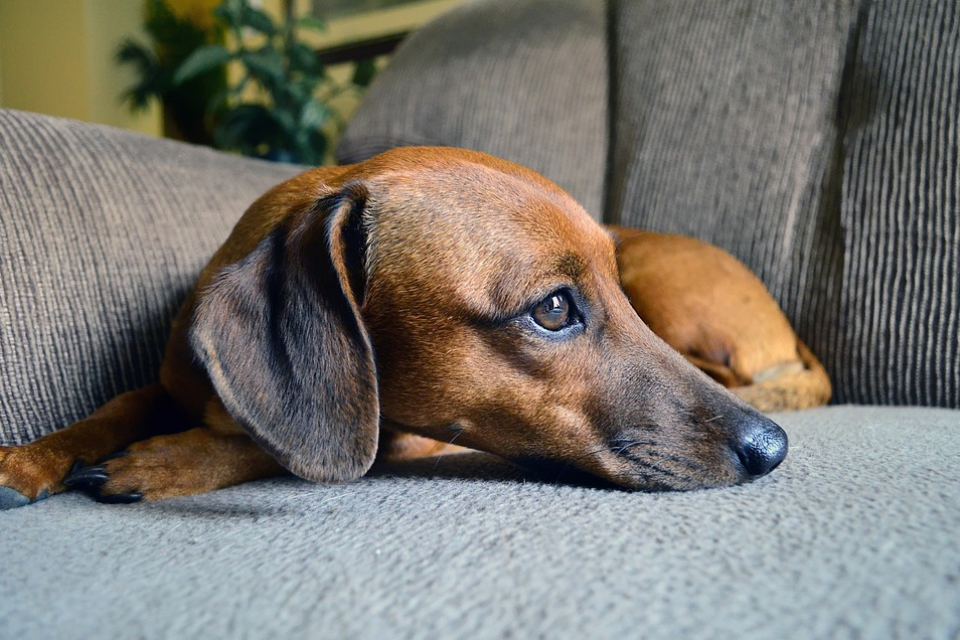Miniature dachshunds are beloved pets for their loyal and affectionate nature, playful personality, and unique appearance. As a small breed of dog, they can be easy to care for, but like any other pet, they have specific needs that owners must meet to ensure their wellbeing. One common question that owners ask is how long miniature dachshunds can be left alone without causing harm or distress.
The answer to this question is not straightforward and depends on several factors, such as the dog’s age, health, temperament, and training. Leaving a dog alone for too long can have negative consequences, such as separation anxiety, destructive behavior, and health issues. Therefore, it is essential for owners to understand their dog’s individual needs and behaviors to determine the appropriate amount of time they can be left alone.
In this blog post, we will explore the factors that affect how long miniature dachshunds can be left alone, recommended time limits, consequences of leaving them alone, and tips for ensuring their comfort and safety. We will also provide practical advice on how to prepare dogs for being alone and how to make the transition as smooth as possible. By following these guidelines, owners can enjoy the companionship of their miniature dachshunds while ensuring that their pets remain happy and healthy.
Key Takeaways:
- Miniature dachshunds can typically be left alone for up to 4-6 hours per day, but it varies depending on individual factors such as age, health, and temperament.
- Leaving dogs alone for extended periods of time can lead to negative consequences such as separation anxiety, destructive behavior, and loneliness.
- To keep your miniature dachshund happy and healthy while you’re away, it’s important to provide mental and physical stimulation, establish a routine, and consider hiring a pet sitter or dog walker.
Factors to consider
Before leaving a miniature dachshund alone, there are several factors that owners need to consider to determine how long the dog can be left alone. These factors include the dog’s age, health, temperament, and training.
Age
Puppies require constant attention and care, and they should not be left alone for extended periods. Generally, puppies can hold their bladder for an hour per month of age, up to a maximum of 8 hours. For example, a 2-month-old puppy can hold its bladder for up to 2 hours, while a 4-month-old puppy can hold it for up to 4 hours. As they grow older and gain more control over their bladder, they can be left alone for longer periods. However, it is essential to gradually acclimate them to being alone to avoid separation anxiety.
Health
A dog’s health can impact how long they can be left alone. If a dog has health issues that require medication or special attention, they may not be able to be left alone for as long. For example, a dog with diabetes may need regular insulin injections, and a dog with mobility issues may require assistance getting up or down stairs.
Temperament
A dog’s temperament plays a significant role in how well they can handle being left alone. Dogs that are more independent and have a lower separation anxiety threshold may be able to tolerate longer periods of solitude. On the other hand, dogs that are more social and attached to their owners may become distressed when left alone.
Training
A well-trained dog that is used to being left alone is generally more comfortable with solitude than an untrained dog. Owners can train their dogs to become more independent by gradually increasing the amount of time they are left alone and providing positive reinforcement when they remain calm and relaxed.
It is essential to consider all of these factors before leaving a miniature dachshund alone. Owners should evaluate their dog’s individual needs and behaviors to determine the appropriate amount of time they can be left alone. Additionally, it is important to provide the dog with ample exercise and mental stimulation before leaving them alone to help reduce any stress or anxiety they may feel. By taking these factors into account, owners can ensure that their miniature dachshund remains happy and healthy even when they are not around.
Recommended time limits
While every dog is different, there are some general guidelines regarding how long a miniature dachshund can be left alone. As previously mentioned, puppies should not be left alone for extended periods, and as they grow older, they can tolerate longer periods of solitude. However, adult miniature dachshunds should not be left alone for more than 4-6 hours at a time.
It is important to note that these time limits are not set in stone and should be adjusted according to the individual dog’s needs. Some miniature dachshunds may be able to handle longer periods of alone time, while others may become distressed after just a few hours. Owners should pay close attention to their dog’s behavior when left alone and adjust the time limits accordingly.
In addition to considering the dog’s age, health, temperament, and training, owners should also take into account their own schedule and lifestyle. If an owner is away from home for extended periods every day, it may be necessary to arrange for a dog walker or doggy daycare to ensure that the dog receives adequate attention and care.
If owners must leave their miniature dachshund alone for an extended period, they should take steps to ensure that the dog is comfortable and safe. This includes providing access to fresh water, a comfortable place to rest, and toys or treats to keep them occupied. It may also be helpful to leave a piece of clothing with the owner’s scent to provide the dog with a sense of comfort and familiarity.
Ultimately, the recommended time limits for leaving a miniature dachshund alone should be used as a starting point, and owners should adjust them based on their dog’s individual needs and behaviors. By providing the dog with appropriate care and attention, owners can ensure that their miniature dachshund remains happy and healthy, even when left alone.
Consequences of leaving dogs alone
Leaving a miniature dachshund alone for long periods can have serious consequences on their physical and mental health. Here are some of the most common consequences:
- Separation anxiety: Miniature dachshunds are known to suffer from separation anxiety, a condition in which they become extremely anxious and distressed when left alone for extended periods. This can lead to destructive behavior, excessive barking, and even self-injury.
- Health issues: Leaving a dog alone for long periods can lead to a variety of health issues, including obesity, diabetes, and urinary tract infections. This is because dogs need regular exercise, proper nutrition, and access to water to stay healthy.
- Behavioral problems: Dogs that are left alone for long periods can develop behavioral problems, such as aggression, fearfulness, and hyperactivity. This is because they are not getting enough mental and physical stimulation, which can lead to boredom and frustration.
- Accidents: Dogs that are left alone for too long may have accidents in the house, which can lead to soiling and damage to carpets, furniture, and other household items.
To prevent these consequences, it is important to ensure that your miniature dachshund is not left alone for more than the recommended time limits and to provide them with adequate exercise, mental stimulation, and socialization.
Tips for leaving dogs alone
While it’s important to minimize the time your miniature dachshund spends alone, there are times when you may have to leave them alone. Here are some tips to help ensure that your furry friend stays happy and healthy while you’re away:
- Provide plenty of exercise and mental stimulation: Before leaving your dog alone, take them for a walk or play with them to tire them out. You can also provide puzzle toys, interactive toys, and chews to keep them occupied while you’re gone.
- Create a safe and comfortable space: Ensure that your dog has access to a cozy bed or crate, fresh water, and their favorite toys. Consider using a baby gate or exercise pen to restrict access to certain areas of your home to prevent any accidents or injuries.
- Use positive reinforcement: When leaving and returning home, use positive reinforcement to create a positive association with your absence and presence. Give your dog a treat or a toy before leaving and when you return home, and refrain from making a big deal of your departure or arrival.
- Practice leaving your dog alone gradually: Gradually increase the amount of time your dog spends alone to help them get used to it. Start with short periods of time and gradually work up to longer periods.
- Consider hiring a dog walker or pet sitter: If you’re going to be away for an extended period of time, consider hiring a dog walker or pet sitter to check on your dog and provide them with attention and care while you’re away.
By following these tips, you can help ensure that your miniature dachshund stays happy and healthy while you’re away. Remember to always prioritize your dog’s needs and well-being, and consult with a veterinarian or a professional dog trainer if you have any concerns or questions.
Conclusion
Conclusion:
In conclusion, miniature dachshunds can be left alone for short periods of time but not for extended periods of time. Several factors should be considered before leaving your dog alone, such as their age, health, temperament, and level of training. It’s also important to understand the recommended time limits for leaving your dog alone to avoid any potential negative consequences.
If you must leave your miniature dachshund alone, it’s essential to provide them with plenty of mental and physical stimulation and to ensure they have access to food, water, and a comfortable resting place. Hiring a pet sitter or dog walker can also be a great option if you need to be away for an extended period.
By taking the necessary steps to ensure your miniature dachshund is safe and comfortable while you’re away, you can help to minimize any potential negative consequences of leaving them alone. Remember, your dog is a beloved member of your family, and it’s your responsibility to provide them with the care and attention they need to thrive.

